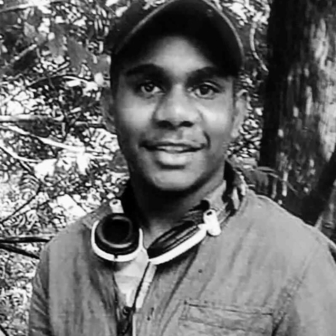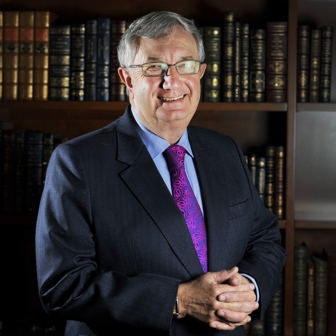Sport and politics don’t mix. Except when they do, which is often. With sport so integrated into society, it would be strange if political or religious speech didn’t seep into elite sport and seek amplification. It can be provocative and polemical, or humdrum and hokey. It can be actual speech or symbolic communication. But from anthems and military bands to gestures like “taking a knee” or kissing a crucifix, sporting events are suffused with sociopolitical expression.
Sport, of the type that so many of us consume as spectators, is also nothing if not big business. Retailers, like elite sporting organisations, used to be wary of controversies in case they alienated a swathe of their customers. Modern businesses, however, are often keen to position their brands, adapt to new demographics, or promote issues dear to their owners or chief executives. Think of Qantas and marriage equality. Or Ben and Jerry’s and just about any progressive cause.
Between the brands and the fans, what about the stars of the show? How are the players and coaches who actually “do” the sport implicated in this branding, and do they have any freedom to express their own views? What whips and reins do those who control sport — the club managers and league officials — wield?
Take the Black Lives Matter movement, which began in the United States but has evolved and spread to many countries, Australia included. One of its powerful early tokens in the United States involved NFL players “taking a knee” when the national anthem was played before major games. For his troubles, the leader of this protest, Colin Kaepernick, was pilloried by none other than the US president, and hung out to dry by his sport.
Yet the tide has turned. Kaepernick is now a heroic figure and even President Trump says he should be welcomed back. Police at BLM demonstrations are now “taking a knee” in fellowship with demonstrators. When football restarted in Australia recently, both Australian rules and rugby league teams followed suit, in solidarity with the movement.
The most prominent Australian case of a speaking-out sportsperson has been that of Israel Folau. Folau used his personal Twitter account to condemn gay people in particular, and those he sees as sinners in general. His persistence with such inflammatory remarks led to his sacking from rugby union. Rugby Australia said he had breached its code of conduct on respectful and non-discriminatory behaviour. Folau’s lawyers said his right to religious expression was being stifled. The case settled.
The formal elements of Folau’s case are familiar. An employer-imposed code of conduct is tacitly agreed to by the employee on hiring. But the employee uses his or her social media presence to make out-there comments. Rather than treat the remarks as the inane emanations of someone paid to run fast or jump high, the wider public piles on and the sport’s custodians react with disciplinary force.
Lawyers then parse distinctions like “was the employer trying to suppress the political or religious content of the speech, or was it driven only to protect its image and the values of its code?” Put this way, there is an intractable clash between an individual’s freedom of expression and the freedom of a club or league to dissociate itself from such expression.
Although Folau’s case involved speech outside work hours and workspace, some people will still sympathise with the club or the league. Not only may the sport pay young athletes handsomely, it also gives them leverage into lucrative sponsorships and a platform to speak out from. If the sport pays the piper, these people believe, it should call the tune. But even the most managerialist among us must admit that employers cannot rule over every aspect of our lives. The law must find an accommodation of sorts.
When it comes to speech on the field or at events run by a sport, however, there is little doubt where the law lies. Employers can control virtually all expressive acts on such occasions. To do so they don’t even need binding codes of conduct. They can rely on their general power of control, through the “obedience,” “loyalty” and “proper conduct” owed by employees.
These ancient duties are implied in every employment relationship by judge-made law. So a club can direct players as to how to behave and appear, at games and promotional appearances alike. The leagues themselves, which negotiate and distribute the spoils of broadcasting rights, wield similar control via the clubs and by nailing down codes of conduct.
So far, so-so, you might think. A league may be obliged by its broadcasters to keep games free of gratuitous symbols and expression. If not, what starts as a piquant sideline can quickly become commonplace and annoying. Remember streaking — those nude dashes by spectators across fields, sometimes carrying flags or with slogans emblazoned on their bodies? When streaking began in the 1970s, it felt liberating. But familiarity bred contempt, and broadcasters eventually banned the images. Today, draconian fines apply to any spectator encroaching on the sacred field.
The problem is that nothing really requires sports to wield their power consistently. Consider two instances, illustrated here. They happened some time apart, but they demonstrate the inconsistency point neatly. Each involves a player from the same famous English soccer club, Liverpool FC.

Laurence Griffiths/PA Images/Alamy

Matteo Ciambelli/NurPhoto via Getty Images
The first image shows Robbie Fowler, a Liverpool striker who now coaches in Australia. After scoring in a high-profile match in Europe in 1997, he raised his team jersey to reveal a t-shirt emblazoned with a message supporting dock workers in a long-running industrial dispute. Fowler was publicly disciplined and fined 2000 swiss francs — not for cheekily riffing off the CK (Calvin Klein) trademark but for breaching the European football association’s policy against any political logos or messages.
Contrast the second illustration, which features Liverpool’s current goalkeeper, Alisson Becker. At the end of the most celebrated match in the 2019 calendar, just as his side was raising the European Champions trophy before an audience of hundreds of millions, Becker lifted his jersey to reveal a bespoke t-shirt. His featured a cross and a heart joined by an equals sign. Read it as “Christ is love.” For his religious expression, Becker faced no sanction.
Before sporting contests it is common to see players from different creeds cross themselves, look skywards or kiss the grass. You might say, well, faith is a personal matter and superstition to quell nerves is rife in sport. But Becker’s was no private ritual; he was deliberately capturing the public stage in an identical way to Fowler. Sanctioning political but not religious expression seems an arbitrary distinction. Religion is no less divisive than politics.
The spectre of the lone star seizing centrestage is actually a fair way from the archetypal examples of sport engaging with sociopolitical expression. The more typical case involves clubs and leagues themselves coordinating the expression and requiring players to take part. Exhibit 1 in Australia is the military presence and the bugler at Anzac Day football rounds. Exhibit 2 is the singing of “Advance Australia Fair” at the start of matches. Each of these formal rituals is an expression of a certain strain of nationalism or view of history.
Not everyone in the stands takes part. The charitable view of these rituals is that they are not enforced patriotism but attempts to transcend club-versus-club tribalism by invoking a unifying theme. But critics see Exhibit 1 as a cynical co-option of veterans or, worse, of militarism. Making hay while the sun shines on the sporting field, as if it were a battlefield.
Other expressive branding exercises are more benign. Australia’s best-known rugby league club, the South Sydney Rabbitohs, long had a logo of a white rabbit on the run. More than a decade ago, it adopted a black rabbit as a variant for its home jerseys. This was not just a tweak to sell more merchandise. The club’s traditional home is Redfern and its teams have fielded many of the finest Indigenous players.
Many will say that sport is tribal enough without adding political or religious divisions to the mix. Others will say that sport is ineluctably mixed up with politics and religion. From governments targeting sporting grants at marginal seats through to Olympian-level bribery and corruption, sport is enmeshed with politics, ethno-nationalism and big finance.
From the more sublime aspects of anti-racist causes to the more ridiculous, sport easily merges into current affairs. For an example of the ridiculous, former Collingwood football coach Mick Malthouse recently made headlines accusing the AFL of selling its soul by staging a game annually in China. Malthouse called for the game to be cancelled as some kind of retribution for Covid-19. In turn, in an off-field version of an on-field brawl, he was mocked by at least one current coach and club chief executive.
Sport seems to be a kind of everyperson’s seasoning for political discourse. In return, sociopolitical controversies within sport allow its tendrils to spread from the back page to the front. At the level of the individual player or event, sports want to manage their brand. But whatever the passing effects of any expressive controversy, in the end it is all a form of profile. Oscar Wilde may have said that the only good thing about sport was that it involved special clothing. But as he also said, “There is only one thing in the world worse than being talked about, and that is not being talked about.” •




